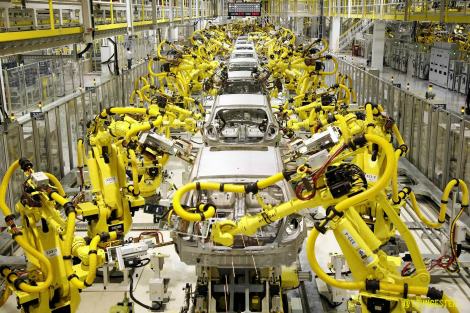The idea that machines will replace humans, transforming the work force, is far from new. The Luddites, bands of English workers who destroyed machinery in cotton and wood mills in the early 19th century because they believed the machines were taking their jobs, were responding to exactly these fears.
 Mostly, similar concerns in the intervening two centuries have proven to be unfounded. The old jobs are lost, but new, previously unimagined jobs emerge. But will that continue to be the case? As technology develops at an accelerating pace, there is growing concern that new social divisions are emerging because the amount of valued work is decreasing.
Mostly, similar concerns in the intervening two centuries have proven to be unfounded. The old jobs are lost, but new, previously unimagined jobs emerge. But will that continue to be the case? As technology develops at an accelerating pace, there is growing concern that new social divisions are emerging because the amount of valued work is decreasing.
The concern is that there will be a 'precariat': a large proportion of the population permanently in a financially precarious situation. That, in turn, will have implications for market demand. If there is too much of a divide between rich and poor, then this will cause the overall market to shrink.
There are certainly signs of deepening social divisions between the rich and the rest of the working population in developing economies. Nevertheless, previous predictions of a collapse in employment have proven to be wrong. This is largely because a confusion arises from conflating production and transactions. They are not the same thing.
If we assume that there is a certain amount of finite production that society needs in order to thrive, and that this is largely unchanging, then having more machines doing the producing would seem to inevitably result in people losing their employment. From this perspective, machines are effectively in competition with workers.
Such a situation may be true at the enterprise level — within a firm, machines can put people out of their jobs — but it tends not to be true across the whole economy. As patterns of production alter, new kinds of transactions emerge. Even if the production of goods and services stays roughly the same, the pattern of transactions will alter — and jobs are defined by transactions: that is, getting paid a wage or salary.
Imagine the selling of a physical widget that was formerly produced by people, but is now produced by machines. That would mean those on the production line will lose their jobs.
But when it comes to the selling of that widget new jobs will emerge. In contemporary markets, for instance, it is important to have effective social media campaigns. That means employing people in a type of job that never existed when people produced the widget.
"Futurist Paul Mason argues that advanced economies are witnessing the 'first economic model in 200 years ... premised on the suppression of wages and smashing the social power and resilience of the working class'."
In this hypothetical example, it is possible that the actual number of widgets may not alter greatly — the production levels will remain the same — yet the type of transactions involved in making those sales could change significantly — and along with it the patterns of employment. Transactions turn out to be far more malleable than production systems.
This is not to say that the new forms of employment will necessarily be especially desirable. Futurist Paul Mason argues that advanced economies are witnessing the 'first economic model in 200 years the upswing of which was premised on the suppression of wages and smashing the social power and resilience of the working class'. He blames the lack of influence of organised labour, which in the 1850s, 1900s and 1950s forced entrepreneurs and corporations to innovate their way to a new form of capitalism, rather than just relying on cutting wages.
According to the OECD, the richest 10 per cent of the population in member economies earn 9.5 times the income of the poorest ten per cent. In the 1980s, this ratio stood at 7:1. In America, the top one per cent earn about a quarter of the income and control 40 per cent of the wealth. The OECD argues that the inequity has resulted in lower economic growth.
The concern is that such inequality may worsen. Guy Standing, professor of development studies at the School of Oriental and African Studies, University of London, has coined the term the 'precariat' to describe a growing under class of people unable to get reasonably remunerated work. If the only well rewarded employment is in technology, maintaining and developing machines, then it is possible that only 20 per cent of the population might have jobs.
That means the issue of jobs cannot be seen as separate from wealth distribution. The problem is — as Henry Ford understood when he paid his workers well so they could buy his cars — that too much social inequality means insufficient demand for products and low economic growth. The issue is not whether or not there will be jobs — it is most likely that there will be — but how fair the wages system will be.
 David James is the managing editor of businessadvantagepng.com
David James is the managing editor of businessadvantagepng.com
This is the latest article in our ongoing series on work.